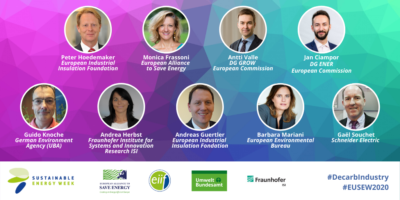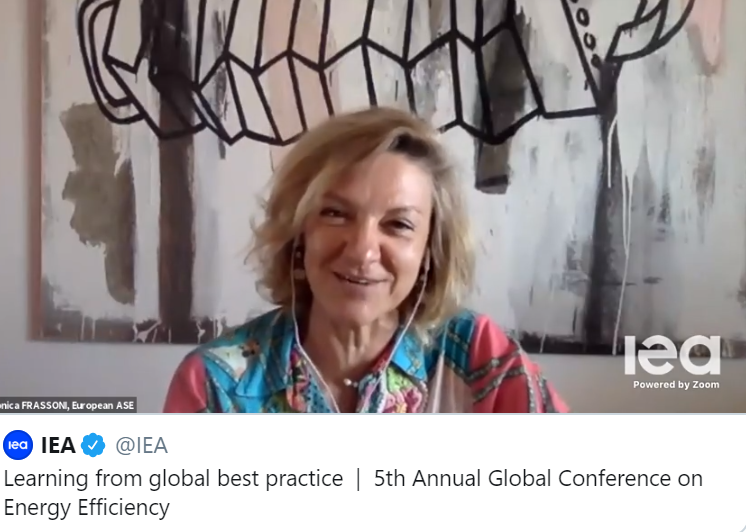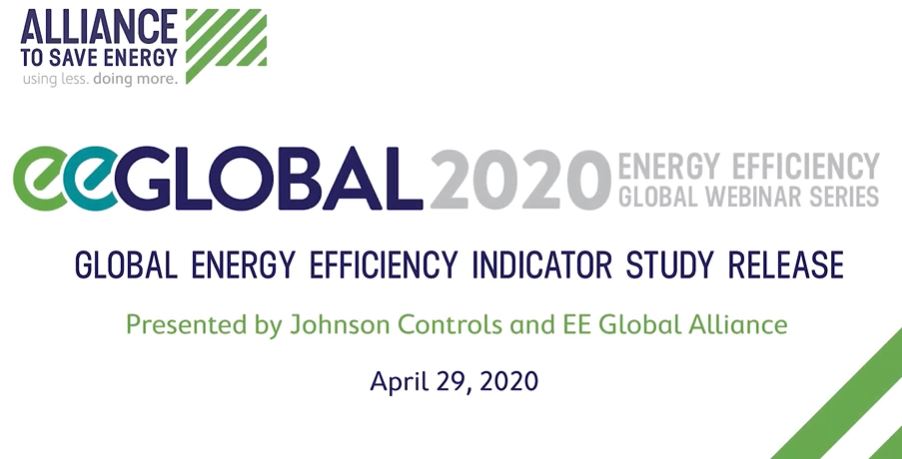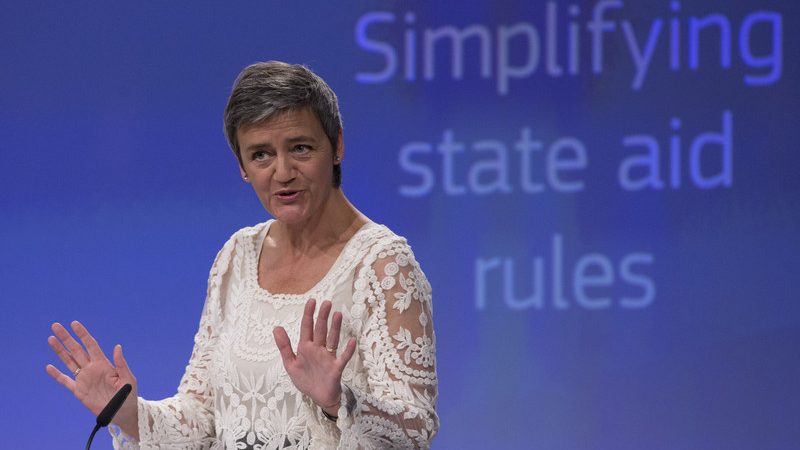On 23 June 2020 EU-ASE president Monica Frassoni participated in the online panel debate “Learning from global best practice” as part of the International Energy Agency’s 5th Annual Global Conference on Energy Efficiency. Here is her full speech
I would like to thank the IEA for your excellent work to make the energy efficiency (EE) agenda credible at global level. About 10 years ago it gave a major global push to show the role and the amazing potential of EE in buildings, transport, and industry and this was a major help for all the EE business and social community in the EU. As EU-ASE we have often used this work to make our agenda stronger, as our work focuses mostly on the EU legislation, at a supranational level.
Referring to what Mr Mathur said before – that EE is like a plane and it takes effort for a plane to take off – well in the EU we are still in the middle of the take-off effort. We cannot say that we are tapping the great potential of energy efficiency to contribute to the clean energy transition and to climate neutrality. We will not be able to overcome the Covid-19 shock and reach climate neutrality without additional financial and legislative measures and a better implementation of the current legislation.
The EU is tight together by common political, legal, and financial instruments, expressed in regulations, targets, subsidies and incentives. This is the case also for EE.
Today, as a result of the current crisis, we are at a decisive moment There is a lot of political work at all levels, intense discussions and work within the EU institutions, Member States, businesses, and the NGO community to make sure that the recovery measures will take the right direction.
A lot of things still ne to be done to mainstream energy efficiency in EU policies. Still, I would like to mention three EU “best practices” that are relevant globally, even if we are still far away from having a clear picture of how successful these will be.
The European Green Deal, in which energy efficiency has a key role to play, is important because it is a deal, it is green, and it is European. The Green Deal works as a framework for the implementation of the current rules and sets a direction for the next EU legislation.
In terms of energy efficiency there are three policy initiatives which are crucial to accelerate EE in the coming years. One is the Sector integration strategy, to be published in July. The second one is the Renovation wave initiative, that for us is key. Many speakers already mentioned the importance of renovating buildings, well, for the EU, the Renovation Wave is a major instrument to reduce emissions by 2050 to make the EU climate neutral. Increasing the current rate of renovation by three times is the main challenge we have in front of us.
Moreover, there is an upcoming review of the Energy Efficiency Directive (EED), which needs to be revised to make it up to the climate targets. We would like to see that the EU sets a GHG target of at least 55% by 2030 to achieve the climate neutrality goal by 2050.
Another very important element which was mentioned by Minister Claude Turmes this morning concerns the EU budget and the Recovery plan. We believe there should be a clear earmarking of EU funds not only to climate activities but also to the renovation of buildings. There is still a huge risk that the Recovery Plan will put resources to activities which are not in line with the EU climate goals.
We also call to increase the “climate action quota” to 40% for the entire EU Budget. And to explicitly exclude from all EU funds any fossil fuel activities. Finally, a small note concerning hydrogen and the hopes that it is raising in the public debate. We see a lot of space for hydrogen in hard-to-decarbonise sectors, namely in transport, but the main solution in buildings remains energy efficiency.
To conclude, I can say that in the EU we have the framework, we have some best practices, but we still have a lot of work ahead to deliver the policies needed in the next 20 to 30 years.
The recording of the full panel is available here





